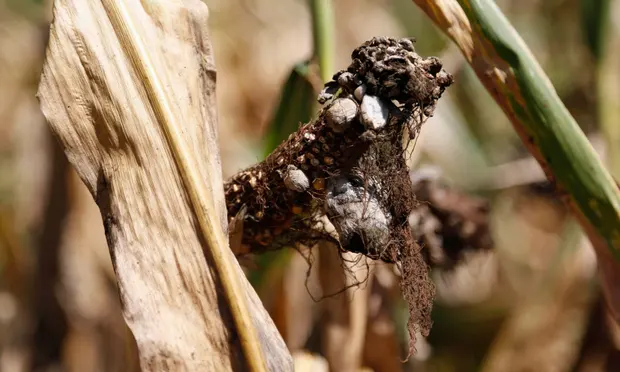Scientists have warned that the fast-rising fungal attacks on the world’s most important crops threaten the planet’s future food supply, warning that failing to tackle fungal pathogens could lead to a “global health catastrophe”.
The warning, issued in an article in the scientific journal Nature, showed that growers already lost between 10% and 23% of their crops to fungal disease.
It also found that across the five most important crops – rice, wheat, maize, soya beans and potatoes – infections cause annual losses that could feed hundreds of millions of people. It showed that Fungi made up the top six in a recent list of pests and pathogens with the biggest impact.
According to reports, Fungi are already by far the biggest destroyer of crops. They are known to be highly resilient, travel long distances on the wind and can feast on large fields of a single crop. They are also extremely adaptable and many have developed resistance to common fungicides.
The scientists also found out that the impact of fungal disease is expected to worsen as the climate crisis results in temperatures rising and fungal infections moving steadily polewards.
Since the 1990s, fungal pathogens are reported to have been moved to higher latitudes at a rate of about 7km a year. Wheat stem rust infections, normally found in the tropics, have already been reported in England and Ireland.
The scientists also said that the higher temperatures also drive the emergence of new variants of the fungal pathogens, while more extreme storms can spread their spores further afield.
Read also: UN says heat records could be broken as the chance of El Niño increases
In his reaction, a co-author of the report from the University of Exeter in the UK, Prof Sarah Gurr said that fungi had recently come to public attention through the hit TV show The Last of Us, in which fungi infect human brains.
“While that storyline is science fiction, we are warned that we could see a global health catastrophe caused by the rapid global spread of fungal infections,”he was quoted as saying. “The imminent threat here is not about zombies, but about global starvation.”
The scientists said that there was also a risk that global heating would increase the heat tolerance of fungi, raising the possibility of them hopping hosts to infect warm-blooded animals and humans.
A co-author of the research, Prof Eva Stukenbrock, at the University of Kiel in Germany said: “As our global population is projected to soar, humanity is facing unprecedented challenges to food production. We’re already seeing massive crop losses to fungal infection, which could sustain millions of people each year. This worrying trend may only worsen with a warming world.”
Story was adapted from the Guardian.
